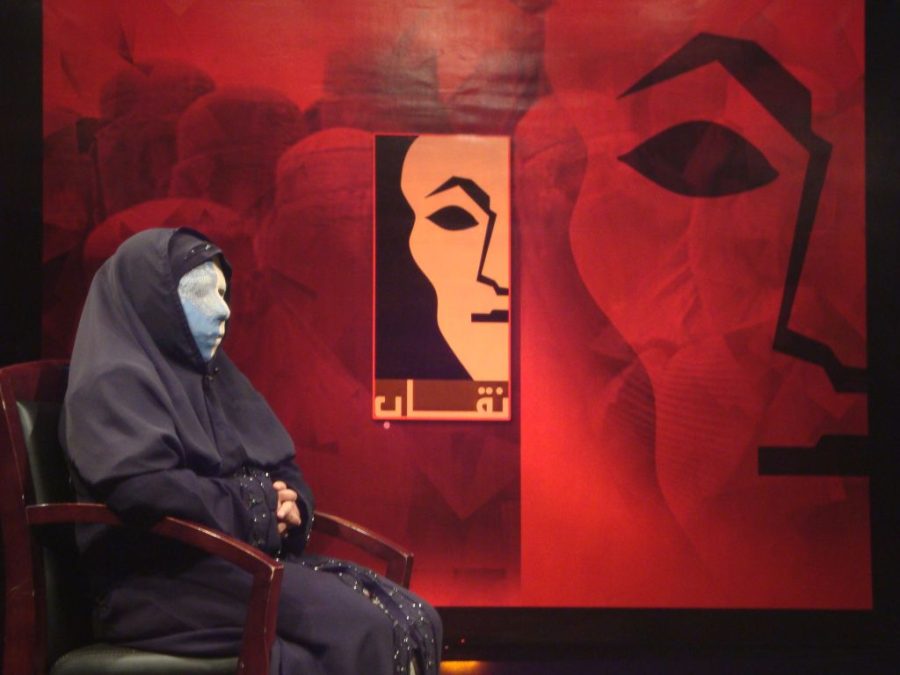Samiullah Mahdi, who is a Fulbright Scholar at the University of Massachusetts Boston, understands the significance of changes in media and women’s rights in Afghanistan over the past 13 years.
“Thirteen years ago, watching television or owning one was illegal in Afghanistan, now the country has over a hundred of TV stations,” explained Mahdi.
Mahdi himself has produced and created several shows on 1TV including Kabul Live Debates and The Niqab. Television plays a major role in bringing change in the country. There are several TV shows that discuss taboo topics like domestic violence and relationships between men and women.
In addition to addressing problems that many would describe as personal, Afghan television is also making strides in helping people express their political views, even if it means being critical of the government. “We have the best media environment in the region,” claims Mahdi, “People are criticizing all levels of authorities, this is unimaginable in many of our neighboring countries, especially in China and Iran.”
From the time of the Taliban, Afghanistan has gone through many changes. It took the country about 13 years to go from having extreme laws and regulations to developing a reasonable environment for the people. In such a short time the country has gone from not having any information delivered to the people, to having absolutely free access to it.
In terms of education, during the time of the Taliban there were only few religious schools for boys and none for girls, now there are 4 million girls going to school, which makes up 40% of the ten million person student population. There are many universities and colleges which prepare students for careers in the fields of media, health care, technology etc.
The political situation in Afghanistan has also improved greatly. When the Taliban were in power, people had no say in what the political system of their country would be, but in 2014 more than seven million Afghans voted in the presidential elections. For years women were being punished for simply laughing in public, now they make up 27% of the national parliament.
In the past few years there have been several organizations and shelters created to support and protect women who are faced with domestic violence or other injustices. This is in stark contrast to the Taliban era, when women could be dragged to the soccer stadium and shot in the head in front of hundreds, if not thousands of men. Bringing change in the arena of women’s rights has not been easy in Afghanistan, and there are several media outlets still working to improve that environment by targeting the core of the problem; the mentality of region’s male inhabitants.
“Niqab”, meaning “mask” in Dari, is one of the projects for which Mahdi received a Knight International Journalism Award. The show brings guest speakers, who are women who have experienced domestic violence and gives them a chance to tell their story. However, unlike other shows, women on this show have to wear a mask for their own safety. In addition to giving women a voice, the show also engages the audience and the panel, which consists of Islamic scholars, human right activists and professors in law, to help the women by giving them advice appropriate for their situation.
The creators of the show spent a year looking for their first guest. Although they explained to the potential women who would want to tell their story that they would be provided a mask for their safety, it was still very unusual for them to be talking about their experience with domestic violence on television. However after the first few episodes women started calling in and asking to participate in the show, with upwards of 40 women volunteering to get involved. Mahdi explained that one of the goals of the show was to educate and change the mentality of Afghan men, who believe that abusing a woman and striping her off her rights is in any way Islamic or legal.
With so many different beliefs about what constitutes right and wrong in the world, it is hard to come to understand how to create a safe environment for everyone. However, one method that can help us get closer to that understanding is discussing the issues that prevent one from feeling safe. This is the reason there so many shows and events focus on the discussion and better communication.
The Niqab is a perfect example of this effective approach and the women who decided to participate in it understand that it can help them whether it’s mentally or emotionally, “Women want sympathy. Many times they don’t find that support from the society because of traditions and customs, but when they have a chance to tell their story properly, it helps them to find the right support from their society because the society understands that they are the victims not the criminals,” explained Samiullah Mahdi.

